
Geneviève Castrée
* Location: I live in Anacortes, Washington, though I am originally from Montréal, Canada.
* How would you describe your art? Worried, hoping to graduate to "tough love".
* Currently working on: Two small projects with a Swiss publisher called "Drozophile".
* Day job: I have none, but I do draw about twelve hours a day (when home).
* 3 Likes: Cooking well; Eating well; Sleeping well.
* 3 Dislikes: Depending on the food available at gas stations; feeling malnourished; getting less than seven hours of sleep.
* Daily Inspirations: Quality radio programming (I do not mean music.)
* People & artists you admire: Jane Jacobs, Gee Vaucher, small stubborn independent groups of people who succeed in making beautiful and meaningful things without selling their soul to the devil. Many of my friends.
* Favourite album(s) to listen to when working: Right now it is all of Gurdjieff's work and "Fire Inside my HAT" by Reiko Kudo, even though I prefer instrumental these days.
- - -
This interview took place in January 2007.All images reproduced with permission © G. Castree.
- - -
- - -
Hi Geneviève, how are you?
What are you up to at the moment?
Hello. Right this moment I am doing very well because I have finished a project which took me over two years to do. It was all very complex for me, the trickiest thing I had ever done, while going on tour constantly. Now my work on it is all done. It is called "Tout Seul dans la Forêt en Plein Jour, Avez-Vous Peur?" and it is a book with a record. I have now moved on to drawing some pages for two slikscreened book projects with a small Swiss publisher called "Drozophile", one is with a bunch of other people and the other is solo.
I read that you started drawing comics seriously from around the age of fifteen, and that you were involved in creating self-produced zines around that time too.
How important, in retrospect, do you think it was to your current output that you entered the world of creating art yourself, and owning your own production and creativities, at such a young age?
I think the most important thing is that because I started when I was so young, I didn't doubt myself nearly as much as I do now and didn't think too hard before doing something. When I first started, I made very embarrassing comics revolving around the typical subjects that many underground comic artists like to write stories about. By the time I turned eighteen, I felt strongly about making comics that I felt like drawing, rather than making comics that looked like what I saw all around me, or the comics I thought people wanted to read.
Now I feel comfortable enough to be me and comfortable with what comes out.
You have claimed that your drawings mix together your own imaginative take on everyday stories. To this effect, by using your own personal, often abstract internal languages, would you deem your work to some degree as ‘introspective’, or do you believe that your work is much more universally reflective than that?
I don't know. I think that is for others to decide. I am trying really hard not to talk about me so much anymore. I am trying to make my work include everybody else. I want other people to read it and think "That is just like me!” Rather than "I wonder if this is about her?”
Artwork in your books such as ‘We’re Wolf’ and ‘Pamlemoussi’ has been described as, “horrific, but in a beautiful way” – how natural for you is composing art that is able to touch on such divergent worlds (sadness *and* happiness, or dark sparsely populated scenes that are also intensely inspiring)?
What do you find most interesting about creating work that is able to meld contrasting points of perception? – especially given that nothing in life is as black and white as we perceive.
I think I am just an intense person. I think I carry some sadness around permanently; I am very worried about a lot of things. Yet I feel comfortable with this sadness. Everything that comes out of me comes out softer than I intended. I mean to be a lot darker.
Many of your drawings depict, or make use of natural environments and the beauty of the natural world and its creatures.However, it seems important to you to reflect and present honest, unclouded realities that are often sugar-coated to protect us, such as the oft brutality of the natural world – would this be an accurate statement to make?
The natural world is brutal. But it is also far more reassuring than the cities we live in. To me it is anyways. I do think there is too much sugar-coating. I wish we were not so obsessed with romantic ideas and being entertained. I wish we lived real lives more.
Talking of natural environments and surroundings, to what degree is your artwork created in response to, and inspired by the Canadian environment in which it is created?I ask this, as to me your art almost seems to recreate visually the calm, clear, sensitive subtleness that I experienced visiting certain parts of Canada.
I think the part of my drawings you are describing is my "idea" of what Canada looks like. A wide majority of Canadians live right next to the U.S. border. We don't actually see much of our country. We see a line on a map.I am obsessed with the North. Yet the only time I ever crossed the Arctic Circle was in Norway. I don't think I know my own country very well.
Your work is highly and carefully detailed and exquisite. The detail and use of subtle brush work almost seems to give your work life on the page, and somehow allows it to explore the page itself.In using a large format for your work to be viewed (e.g in the 12”x12” square Pamlemoussi book), do you find it benefits your work and allows it the space to live, explore and dance on the page?
Drawing on large pieces of paper is very difficult for me. It is a challenge, because I always want to leave all this white. Or fill it all in black. I often plan on cramming it all with details, but then I end up leaving wide spaces because they feel so good.
The careful, intricate detail in much of your work would suggest an eye for detail, and possible perfectionism.
What is your view of perfectionism in art, and more specifically in your own art work?
I have people close to me who get irritated as I work. Because I really take my sweet time. They do not understand why I say I am not finished with a drawing yet, when to them it looks completed. I think that getting deep into the details can be a form of meditation. I find it soothing.
Returning to the idea of bringing artwork to life, do you find it difficult to allow your art a full life or a full voice by visuals alone?
I ask this as a few of your works have been given further dimensions by providing them with a musical and vocal soundtrack, such as vinyl recordings that accompany the art, (or maybe the artwork creates a soundtrack for your music), and thus provides further sensory lives.
I guess I feel that adding music to the drawings, or drawings to music tricks me into believing that I made it harder for people to miss the point?
Is the creation of the musical and visual aspects of a project one that comes about in unison as ideas develop for both? Or, do you work by translating your records into drawings (or visa versa)?
When I draw, I always end up with all these little pieces of paper with notes on them. I write down a lot of ideas that come to mind, some of them music related. It is sort of half-and-half, I think of music when I draw and drawings when I am making music. Also, I sing a lot.
Much of your collections of drawings are distributed by a poetry publisher, L’Oie de Cravan. How do you view the relationship between visual, written and aural poetics?
I think it is flattering to have your drawings published by a poetry publisher. I would like to think of drawings as poems more.
I have read that your next upcoming project(s) is inspired by war and conflicts of all kinds.
It has been said that,‘Never has there been a time where the arts could simultaneously impact the closest corners of our communities and the further stretches of the globe, than now. We as artists have the ability and now vast opportunities to affect our surroundings near and far, to question views, to reach the world around us and make a difference… not through political or financial means or through social positions and status… but through art.’
To what degree do you agree with this view and power of art?
I think that many artists, including myself, should get involved, beyond making art. But I also believe that not enough is being said in art right now about the state of the world. I think of artists as people who pay extra careful attention, so what the fuck are we up to? What are we looking at? Our MySpace accounts? The Sonic Youth message board? The complete DVD collection of this TV show we liked when we were kids?
I view much of your work, and your artistic ideas as a kind of visual support, optimism, reassurance and an honest encouragement, both for your characters and the viewing audience.
By creating a project inspired by conflict, and the hope for conflict cessation and resolution, do you wish to offer your audience a form of comfort and reassurance in their own beliefs and hopes of such action being a reality?
That is what I mean when I say "Tough Love". It is my new favourite thing right now. I have been getting into these two writers, Jane Jacobs, who died last year, and Dr. Helen Caldicott. Both of them have very nurturing voices. They are motherly in the ways that they explain things to you, yet they are also in your face. That is the type of voice that I want to hear! That is the voice that I feel like listening to!
"Yes, there is hope, but to change the world we are going to have to make huge compromises." rather than "What you have earned through your long life of hard work will remain yours forever, you are not one of the people who need to compromise."
Reflecting on my question above, there almost seems to me to be a ‘community’ aspect to your work; a community feeling of support and encouragement, and a feeling of your work ‘giving’ a lot to your audience.I remember reading an interview with U.S relatives of 9/11 victims who were talking about the polarity of chaos/community as a response to the attack. One relative claimed of the conscientious objectors and refusers of both opposing factions that,‘if we don’t support the current situation then we have to take an active role in globalising an alternative, and I believe that getting to know one another and our realities is a powerful way for this to grow.’
In terms of reflecting the world around you, and everyday stories within your work, is it important to you to create artwork that creates a sense of community and shared understandings, as opposed to fuelling a reaction of chaos?
It is nice for you to say this, but I sincerely believe that my drawings are not at that level yet. I feel like I am finding more and more things to say, and I am finding new ways to express those things. Being clear and to the point is difficult. I would like to make things for people to relate to and to be comforted/changed/inspired by, but I am still going to have to work on that one. I feel like I have just woken up from a big sleep. Like I just started noticing things.
I also recently read of Israeli war Refusers, who claimed that their first step in gaining support for their aim for peaceful solutions and an end to the warring in their communities is consciousness raising and education of the actual situation. The refusers hope to spread an understanding that,‘it’s our militarized view of the world and our militarized actions that perpetuate the conflict we’ve been embroiled in for so long, not the other way around’, and thus showing each other the ways ‘in which militarism is harming our lives and the state’.
By creating art work that is influenced by war and conflict, to what degree do you think it has the power to act as further consciousness raising, or able to fuel understandings and education on issues of war and conflict?
Yes, education seems to be the cure for this addiction to conflicts we have. What I hope when I make what I do is that a person who has not been exposed to the different possibilities will see some of them through what I drew. In a way, it could mean to simply pay attention to things and people a little more, or just do more of the healthy things they enjoy doing. We all have face conflicts in our lives and discussing it will only help us find the tools to prevent them from happening again.
Finally, and to end on perhaps a more uplifting note, I am aware that you have been involved with facilitating art and comic workshops, and have supported the belief that everyone can make comics, even if you think you can’t draw.
How invested are you in connecting with other potential artists, inspiring their creativity, and motivating them to spend time with their ideas?
I wish I got to do this type of thing more often. Workshops feel amazing, because I walk around and sit down with strangers who would like to learn more about what I do and how to do it. The best part is that I don't talk about my comics at all, I talk about theirs.
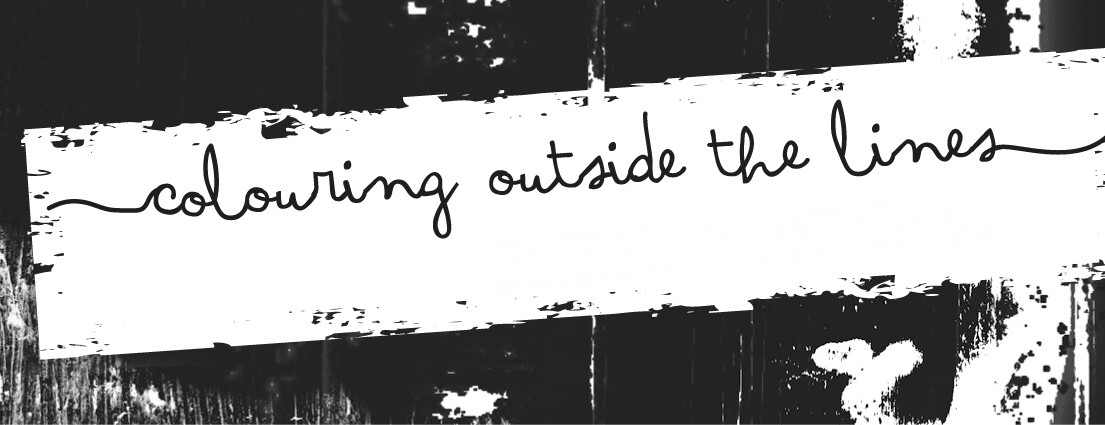





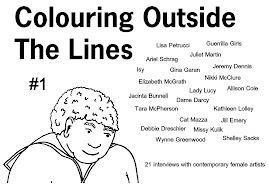
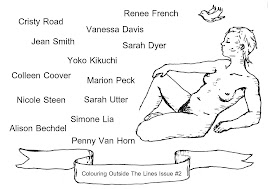

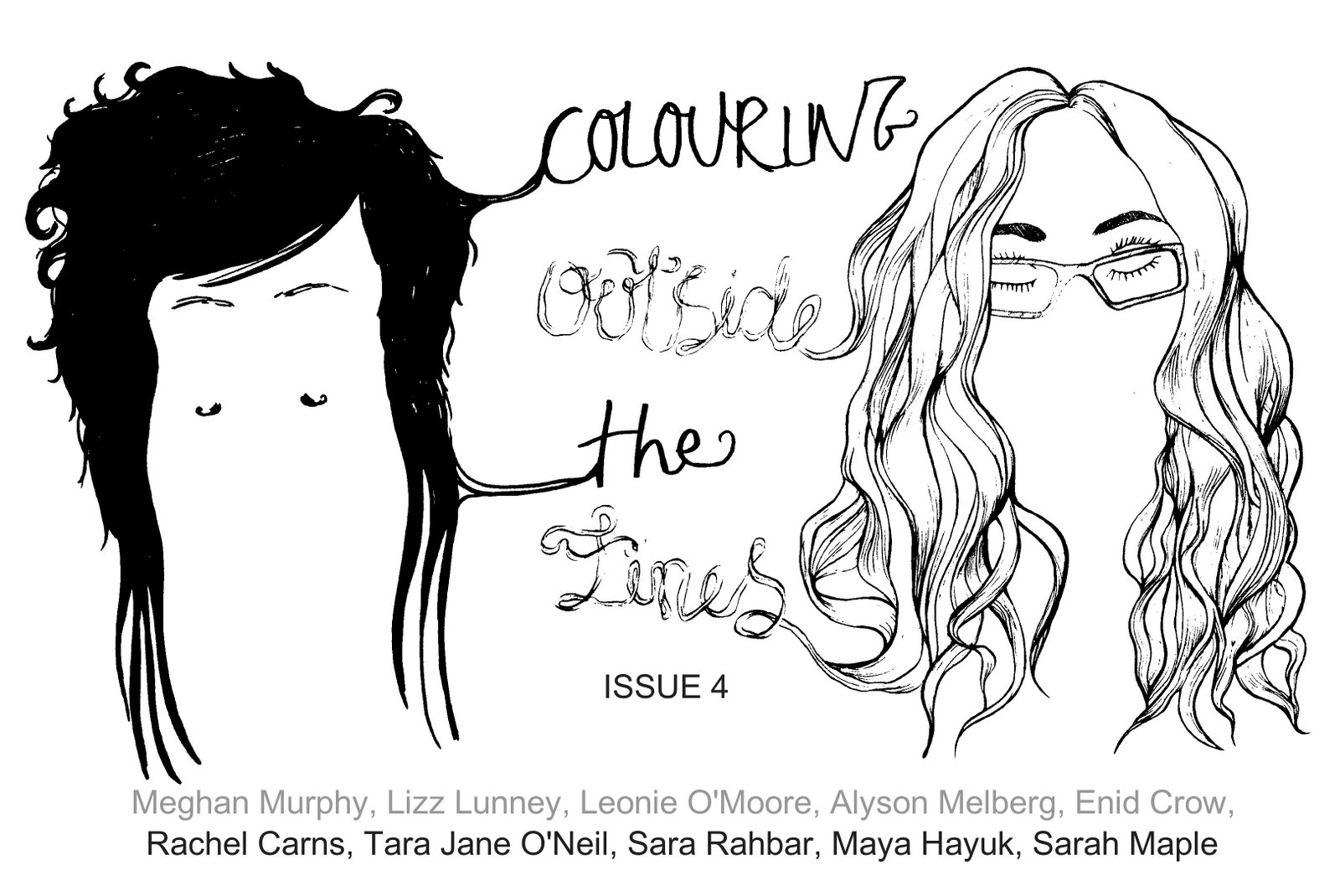

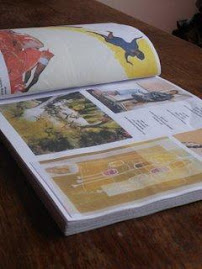



No comments:
Post a Comment